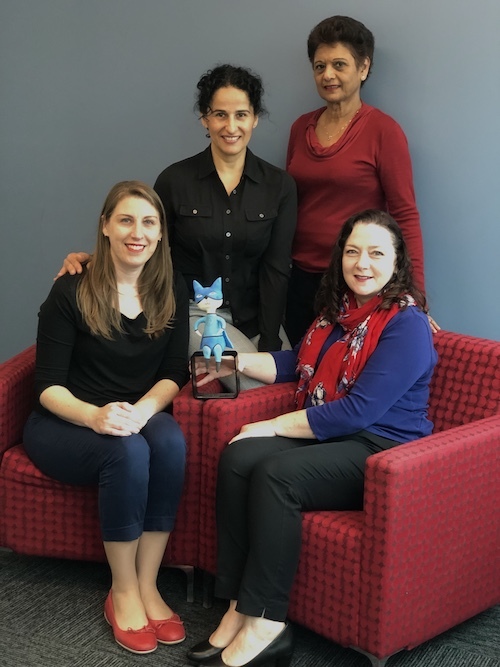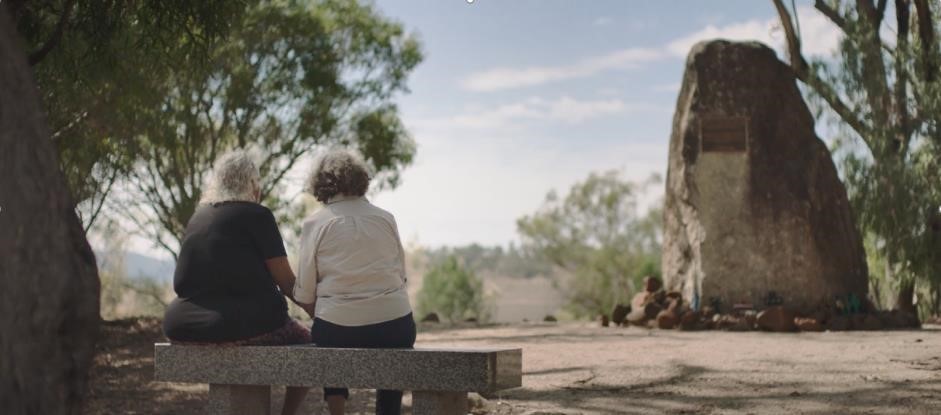Great grantmaker team's future focus
Posted on 17 Sep 2019
By Matthew Schulz, journalist, Our Community

Australia's best grantmakers aren't short of ideas for providing funding more effectively, with the NSW Heritage Grants Team proposing several to make things easier for grantseekers.
These ideas saw the four-member team jointly secure the Australian Institute of Grants Management's hotly contested Grantmaker of the Year prize.
Yet the team told the judges that they'd spent a long time selecting only their best ideas from many others.
The Heritage Grants Team group said the award process had helped them to examine grants from an applicant's perspective.
The ideas they included in their application were:
- a grantmaker-grantseeker portal
- a planning platform for prospective applicants
- a "champion team" to support grantseekers.
Time for a grantmaker portal
The team suggests that a grantmaker-grantseeker portal could be incorporated into a grants management platform, such as SmartyGrants, operated by the Australian Institute of Grants Management.
The concept would see grantmakers and grantseekers connect, share documents, issue alerts, disseminate good news stories and lessons learnt, and issue hints and tips.
Important information would be uploaded to the system and be available any time via a dashboard. It would host documents such as:
- sample funding agreements
- photo monitoring templates
- key performance indicator (KPI) templates
- information on monitoring and evaluation
- statutory declarations
- photo release forms.
The heritage team said the tool could save time by eliminating the need for mailouts and keeping information in a single place.
Jessica Rutherford, the director of SmartyGrants delivery, confirmed that SmartyGrants is looking closely at the team's ideas, particularly any that could be incorporated into existing upgrade plans.
"We're always working on improvements, including better accessibility and file management for both grantmakers and grantseekers. These suggestions are definitely on our radar."
Planning platform a foundation for better grants
The NSW Heritage Grants Team also believes there's room for a "planning platform" for grantseekers. Again, the platform could be hosted by SmartyGrants, or another grants management tool.
The platform would be a place for grantees to plan ideas before a round opens, with templates, guides and checklists available to help grantseekers develop a project before applying, and to refine plans - during the application process - to better meet guidelines.
Such a process would make it easier to pre-fill application forms and establish a standard framework for applicants.
"As grantmakers we get feedback that the round opening timeframe (the application phase) is inadequate for some, such as volunteer-run community groups, and that they need a place for documenting their ideas and collaborating," the team wrote in their award-winning application.
"This planning stage could also serve as a 'test' to see if the project is ready to apply for a grant."

Members of the NSW Heritage Grants Team (L-R) Jan Nye, Rosanna Luca, Nicole Guyatt and Rukmani Balram.
The team proposed a dozen standard questions prospective grantseekers should be able to answer before lodging an application, such as:
- What do you want to do?
- Why do you want to do it and why is it important?
- Who or what will benefit from the project?
- How will you do it, including what are your methods, approach, skills and engagement?
- What grants might be suitable?
- How will you know if your project is successful? (including how the project will be monitored and evaluated)
- How long will things take to do (the project timeline)?
- Where does this take place (a specific location, a region, or a community)?
- Who will be involved in planning and delivering the project including specialists, stakeholders or partners?
- Who do you need to consult before or after applying for a grant?
- What are the approvals, permits, licences etc that may be required and do you need to allocate time and money for this?
- How much it will cost to deliver the project successfully, based on quotes and informed estimates?

Grantseekers need their champions
The Heritage Grants Team have already implemented one idea included in their application: they've introduced a super-charged grantseeker support team, and an engagement program that has lifted successful applications from indigenous groups dramatically.
Dubbed the "champion team", the grants support team consists of seven people from across NSW, four of whom are indigenous.
And rather than hiding the team behind an anonymous email address as some grantmakers do, they published team members' pictures, contact details, and expertise on their website.
This transparency allowed applicants to identify support staff who would suits their needs in relation to information, culture, gender and location.
The engagement program also involved commissioning the work of a respected Aboriginal artist to interest stakeholders and using appropriate language. This has increased awareness of and sensitivity to indigenous cultures. Another planned spin-off is for successful applicants to be invited to showcase their grants experience with others in their communities.
The grants team say there are good reasons for taking this approach.
"Grantmakers need empathy, people skills and an understanding of cultural safety. Some of our grantees have suffered trauma and loss and have a mistrust of government.
"Being a calm, understanding and empathetic grantmaker provides support to the grantee and establishes confidence and trust."
The "champion team" plan followed an independent evaluation of past rounds that recommended better engagement with grantseekers applying for funds through the Aboriginal Cultural Heritage program.
"By giving people culturally-appropriate choices we truly engaged and connected with customers in a way that supported their cultural health," the team wrote in their application.
The champion team approach paid dividends, with grantseekers finding staff "helpful and enthusiastic" and being "what our community needs".

About the NSW Heritage Grants program
While the four-member team may be small, it boasts a combined 55 years of experience.
Team leader Jan Nye says the rich and diverse heritage of NSW includes values, traditions, events and experiences, as well as landscapes, objects, items and the built environment.
"Heritage enables us to acknowledge and appreciate our collective history, and to understand how events in time have impacted the community. Heritage gives context to who we are as individuals and as a community, and how we can embrace and celebrate that, and pass our heritage on to future generations," Ms Nye says.
"Identifying, conserving and celebrating our heritage connects us to [our] story and gives us that sense of continuity and belonging to the place where we live."
The team also plans to share its ideas with the rest of the grantmaking community, including at the next SmartyGrants Muster in Sydney.